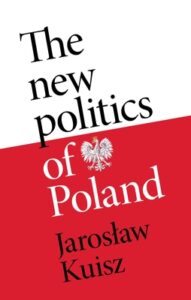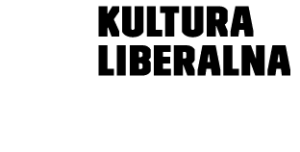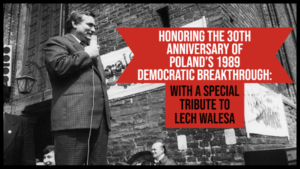While hyperbole is understandable in the heat of a campaign, Poland’s unhinged election season risks having real consequences, he writes for American Purpose.
Two scenarios are possible following the election, analysts Jaroslaw Kuisz and
- The first would be a government led by Law and Justice. That would mean deepening the systemic dismantling of Polish democracy: strengthening the executive at the cost of the judiciary, attacking independent media, imposing on the school system, and undermining the rights of minorities, especially women and the L.G.B.T.Q. community. But Law and Justice wouldn’t have things all its own way. It would most likely have to share power with the extreme right-wing Konfederacja, which has been spreading anti-vaccination, anti-minority and anti-Ukrainian sentiment. ….
- A second scenario is still possible, too: victory by the democratic opposition. In this case, Poland would have a colorful government, led by the Civic Coalition in compact with smaller parties, that would focus on restoring the independence of the judicial system and opening Poland back up to the West. Diplomatic support for Ukraine would be at the forefront, as would engaging with allies over the country’s future and that of Europe. Not everything would change. The country’s harsh migration policies would most likely remain in place and controls at the border with Belarus retained, albeit without pushbacks.
 But even if the opposition wins and the government quietly cedes power — far from a given — Poland would not simply be returned to political health, Kuisz and Wigura add. A deeply entrenched populist system, a president loyal to the Law and Justice party, a puppet Constitutional Tribunal and Supreme Court — these are just a few of the problems a new government would face.
But even if the opposition wins and the government quietly cedes power — far from a given — Poland would not simply be returned to political health, Kuisz and Wigura add. A deeply entrenched populist system, a president loyal to the Law and Justice party, a puppet Constitutional Tribunal and Supreme Court — these are just a few of the problems a new government would face.
Poland’s solidarity with Ukraine was to a large extent built on historical fear of Moscow, notes Jaroslaw Kuisz, editor-in-chief of Kultura Liberalna and the author of “The New Politics of Poland: A Case of Post-Traumatic Sovereignty”. Given Russia’s past expansionism, and its continued desire to extend its sphere of influence, the people of Poland, Ukraine and numerous other central and east European countries share a particularly nervous attitude to statehood—a phenomenon I call “post-traumatic sovereignty”. That the solidarity has frayed in recent months is down to a number of factors, he writes for The Economist:
- First, Poles have begun to suffer from aid fatigue. After the outbreak of full-scale war Ukrainians got access to Poland’s labour market, health care, education and social assistance on an equal footing with Polish citizens. Over time, some of them became competitors for jobs. Amid severe economic challenges, including high inflation, the image of refugees is changing, all the more so since the end of the war is not in sight. Almost 40% of Poles now say they would like to abolish their country’s special aid package for refugees. Disquiet has been stoked by Konfederacja (Confederation), a far-right political alliance whose support hovers at 10%, according to opinion polls.
- The second factor is the changing dynamics of Ukrainian politics. Worn down by 20 devastating months of war, Mr Zelensky and his government have begun to adopt a more bitter tone in statements referring to some of Ukraine’s neighbours and allies. With Russia targeting stockpiles, grain is a particularly sensitive issue.
- Third, Polish politics has become cut-throat during the election campaign. The current populist government led by Law and Justice (PIS) is fighting for a third term. It is not far enough ahead in the polls to be sure of one: PIS’s support is at 36%, six points ahead of the (centrist) opposition Civic Coalition. So the government is nervous. Its desire to cling to power has a whiff of desperation: if it loses the election, some of its politicians may face criminal charges for violations of the rule of law, including steps to undermine judicial impartiality and transparency.
 PiS’ leader, Jarosław Kaczyński, 74, and Tusk, 66, entered politics as part of the Solidarity protest movement that won a landmark election over the Communists in 1989, just before the fall of the Berlin wall, The Financial Times adds:
PiS’ leader, Jarosław Kaczyński, 74, and Tusk, 66, entered politics as part of the Solidarity protest movement that won a landmark election over the Communists in 1989, just before the fall of the Berlin wall, The Financial Times adds:
Both politicians have used the spectre of Russian president Vladimir Putin to tarnish their rival. Kaczyński claims Tusk is a Russian spy and Tusk warns that Kaczyński will replace Poland’s EU membership with an authoritarian state modelled on Putin’s Russia.
“They are like two deers which have locked their antlers so hard that they might die together,” says Rafał Ziemkiewicz, a writer and political commentator. “For Kaczyński, the only reason to remain in politics is to get Tusk out of the room and for Tusk it’s to get Kaczyński out of office,” he adds. “If it was just two older guys who hate each other, this wouldn’t be such a big issue, but a majority of Poles identify with one of them, [they] feel either patriot or European, traditionalist or progressive.”
 “Of course they were all my children, they worked with me,” says Solidarity’s leader Lech Wałęsa, when asked about Kaczyński and Tusk. “They wanted to be politicians but had a totally different understanding of what being a politician means . . . I would say Tusk is convinced that democracy is a good system, but for Kaczyński democracy is a possible obstacle to fulfilling his will.”
“Of course they were all my children, they worked with me,” says Solidarity’s leader Lech Wałęsa, when asked about Kaczyński and Tusk. “They wanted to be politicians but had a totally different understanding of what being a politician means . . . I would say Tusk is convinced that democracy is a good system, but for Kaczyński democracy is a possible obstacle to fulfilling his will.”
“We should give the countries of Central and Eastern Europe some slack,” said Daniel Fried, a former US Ambassador to Poland. In a single generation, they have gone through “massive, intense transformation” that lasted three generations in other democracies, he told today’s Brookings’ Center on the United States and Europe webinar (above). The panel of experts – including National Endowment for Democracy (NED) board member Fried – unpacked the complicated politics of the Polish elections, the direction of democracy in Central Europe more broadly, and implications for the United States, EU, Ukraine, and trans-Atlantic security.
The vicious 20-year feud at the centre of Poland’s election https://t.co/5V9v58ANRh via @financialtimes
— Democracy Digest (@demdigest) October 12, 2023







